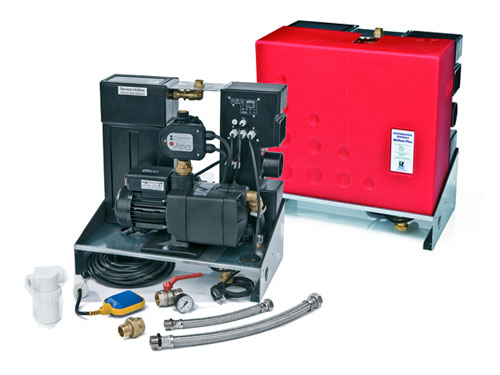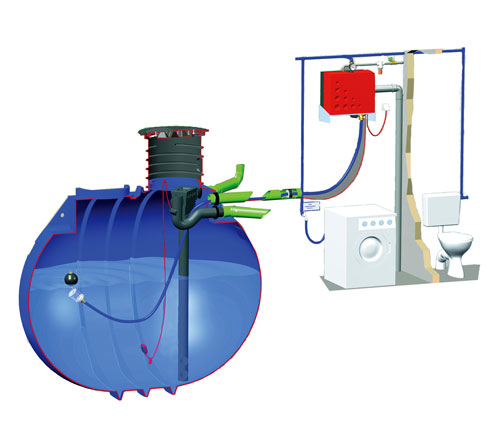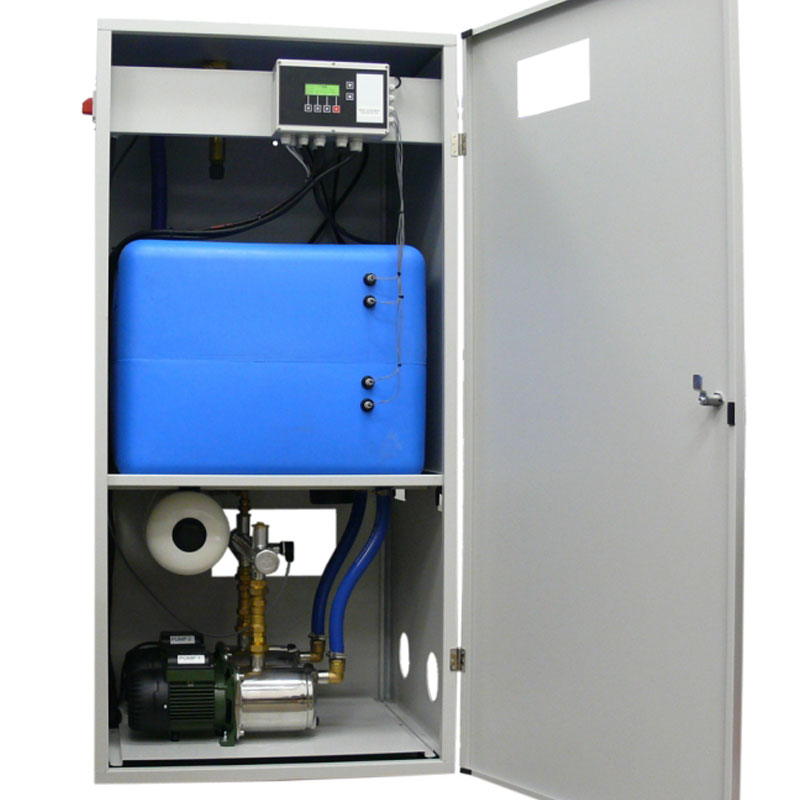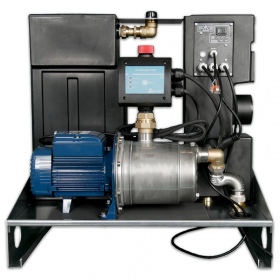- perm_identity Maciej
- favorite 25 likes
- remove_red_eye 19628 views
- comment 2 comments

RAINWATER CENTRALS - RAINWATER MANAGEMENT
They are installed in places where rainwater or gray water is used for flushing toilets, washing, washing and cleaning. These places should be connected to wires leading through the control panel (the so-called dual installation). The central is a fully automated device built, among others from a pump, a handy city water tank and from automation, which allows uninterrupted operation, even in the absence of rainwater in the tank.

The control panel has a water and rainwater inflow and a handy tank. If there is no water in the rainwater tank, the central controls the three-way valve in such a way that the handy tank is filled from the water supply. If there is water in the tank, it is used first. The entire system should be equipped with a water stagnation system, which, in the event of lack of water intake, replaces the water in the handy tank, so that the water supplied to the utensils is always fresh. Water management with the use of a rainwater center guarantees great comfort of use. Rainwater centrals mainly use self-priming pumps protected against dry running. The rainwater central is best installed in a boiler room, garage or technical room. The device can be placed on the floor or mounted on a wall. Good quality rainwater centrals are well damped, and the sounds they make are comparable to a running desktop computer.
These solutions are constantly gaining in popularity, and therefore more and more often they are used in rainwater management, both in single-family houses, larger residential buildings and large public buildings.
Domestic rainwater centrals
Domestic rainwater centrals are definitely smaller solutions. The pumps are usually characterized by a working pressure of about 3.4 - 4.8 bar (which translates into a water lifting height of up to 25 m) and a capacity of 4.2 to 7.8 m3 / h. The handy tank has a capacity of about 20 l. In the case of a short distance between the central and the tank (up to 12 m), usually only a suction pump is required. The control panel can operate in manual or automatic mode. In automatic mode, priority is given to using rainwater as soon as there is an appropriate level of rainwater in the tank. When there is no rainwater, a signal is sent to the control panel to switch the consumption to tap water.

Rainwater centrals for public utility buildings and industrial purposes
The principle of operation of industrial centrals is the same as domestic ones, they differ mainly in design, size, capacity and lifting height: a single device can have a capacity of up to 25 m3 / h and a lifting height of up to 60 m. In the case of such solutions, two pumps operating alternately are most often used. In the case of the largest water consumption, two pumps work simultaneously. Or there may be times when a booster pump is required to be placed in the tank. Industrial centrals have a more complicated control system.

To select the appropriate rainwater center, it is necessary to calculate the expected water consumption in the building (which is influenced by the number of users, the number of toilets, urinals, washing machines, washing area and garden area). It is also necessary to calculate the difference in geometric height between the unit and the tank, and between the unit and the highest point in the installation.
Related products
Rainwater control panel Aquamatic Domestic C Plus
- Rainwater for toilets, washing machines, garden irrigation
- Fully automated station
- Capacity 4.2 m3 / h, lifting H = 48 m
Comments (2)
-
Czy z programu Moja Woda można otrzymać dofinansowanie takiego sprzętu?
-
Taj jak najbardziej urządzenie podlega refundacji z programu "Moja Woda". Podlega ono pod : "elementy do wykorzystania zatrzymanej wody deszczowej, czyli pompy, centrale deszczowe, punkty poboru wody, skrzynki ogrodowe, węże ogrodowe itp,pozwalających na zagospodarowanie deszczówki na terenie nieruchomości objętej przedsięwzięciem."

